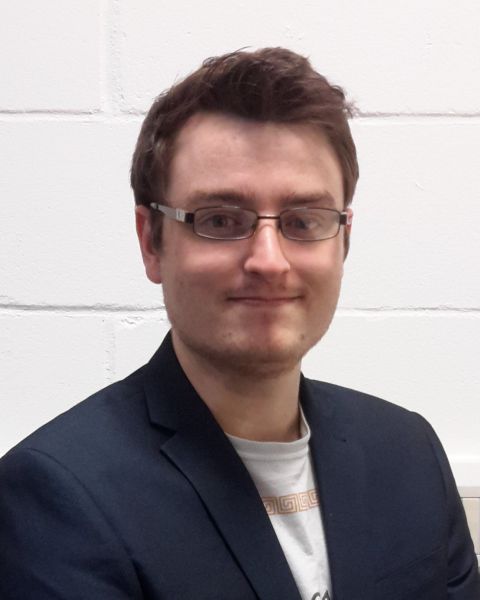Ben Irwin

Ben Irwin
Member of Clare Hall
PhD student in Dr Huggins's group
Office: 544 Mott Bld
Phone: +44(0)1223 3 37049
Email: bwji2 @ cam.ac.uk
TCM Group, Cavendish Laboratory
19 JJ Thomson Avenue,
Cambridge, CB3 0HE UK.
Research
Improving Solvation Entropy Accuracy:I am researching techniques to improve the convergence and accuracy of solvation entropy estimates in the inhomogeneous fluid solvation theory (IFST) framework. Currently a non-parametric 'k-nearest neighbours' (KNN) algorithm is used to achieve an unbiased asymptotic convergence to the entropy difference between a bulk fluid and a fluid with a solute. For a high throughput analysis of solutes, it is necessary to maximise the rate of convergence of this algorithm in order to minimise the required length of the input trajectory data. I am currently investigating the implementation of a higher order version of the KNN algorithm which takes three body entropy contributions into account.
Measuring Free Energy Changes:
I am designing methods to measure free energy changes in the context of protein-ligand binding. Being able to accurately measure binding free energies of potential drug molecules to disease proteins in the computer would help create new medicines quicker and cheaper. I have applied some methods to the binding of lopinavir to HIV Type 1 Protease.
In Plain English
I am working on a method to add accuracy to a framework called Inhomogeneous Fluid Solvation Theory (IFST). The method can predict how favourable it would be to add something (an atom, a molecule, a protein...) into a solution. The current way we measure the relavant quantities is guarenteed to get better with more data. The theory currently only looks at interactions betten the solute and the solvent. I'm working on a way to include additional information into the estimate to take into account the solvent interacting with itself given that a solute is present. Some of my work relates to developing new medicines in the computer by measuring a quantity called the free energy of binding in a simulation of the protein and the medicine. I have tested some new methods I have developed on the HIV protein with a medicine called lopinavir.Featured Publications
Prediction of GABARAP Interaction with the GABA type A Receptor. Irwin B. W. J., Vukovic S., Payne M. C., El Gamacy M., Chau P. L., Proteins. 2018 SeptemberEstimating Atomic Contributions to Hydration and Binding Using Free Energy Perturbation. Irwin B. W. J., Huggins D. J., J Chem Theory Comput. 2018 April
On the accuracy of one- and two-particle solvation entropies. Irwin B. W. J., Huggins D. J., J Chem Phys. 2017 May